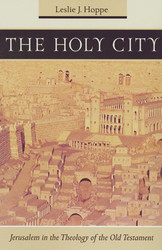To be human means to resist dehumanization. In the darkest periods of human history, men and women have risen up and in many different voices said this one thing: "Do not treat me like this. Treat me like the human being that I am." Claiming Her Dignity explores a number of stories from the Old Testament in which women in a variety of creative ways resist the violence of war, rape, heterarchy, and poverty. Amid the life-denying circumstances that seek to attack, violate, and destroy the bodies and psyches of women, men, and children, the women featured in this book absolutely refuse to succumb to the explicit, and at times subtle but no less harmful, manifestations of violence that they face.
Product Preview
| Format: | Paperback book |
|---|---|
| Product code: | LP8419 |
| Dimensions: | 6" x 9" |
| Length: | 192 pages |
| Publisher: |
Liturgical Press
|
| ISBN: | 9780814684191 |
| 1-2 copies | $21.95 each |
|---|---|
| 3-9 copies | $20.95 each |
| 10-49 copies | $19.96 each |
| 50-99 copies | $19.46 each |
| 100+ copies | $18.71 each |
Praise
This is a superb resource for those seeking to engage oppression, precarity, and trauma in biblical texts and in contemporary communities. Using the stories of Jephthah's daughter, Abigail, Ruth, Susannah, and more, Claassens highlights women's creativity and resilience in situations of systemic inequity and interpersonal brutality. Sophisticated gender analysis is combined here with unflinching attention to violence in its many forms. Claassens's exploration of strategies of resistance makes this book essential reading for those interested in biblical ethics and feminist approaches to Scripture.
In this volume Juliana Claassens has once again applied her careful exegetical eye and her deep theological insight to texts that illumine the experience and witness of women in the Old Testament. The result in every chapter in this collection brings voices and stories of women, usually confined to the margins of biblical interpretation, into our consciousness with fresh perspectives that enrich the humanity of us all.
Claiming Her Dignity introduces us to fourteen biblical women who bravely responded to the violent evils of war, rape, systemic injustice, and poverty in seemingly small but effective and creative acts of nonviolent resistance and in the process retained their dignity and agency as full human beings. Claassens brilliantly demonstrates how the complex, realistic, and hopeful accounts of these ancient biblical women continue to reverberate in the stories of women and other marginalized people in our world today. Highly recommended!
A tour de force of exegesis, pastoral application, use of literary and sociological theory, Claiming Her Dignity takes its place as both a worthy descendant of Trible's Texts of Terror and the opening of new avenues for feminist, womanist, and postcolonial readings of the Hebrew Bible. Claassens retrieves and animates a powerful but overlooked biblical ethic of resistance that exposes our ideologies of violence and challenges us to rise above them. At once a deep engagement with the biblical text and a dialogue with a wide range of thinkers from across a stunning array of disciplines, this book has something to teach pastors, academics, and students.
This challenging book offers a message of hope not just for women but for anyone who struggles to understand and respond to persistent and dehumanizing violence.
C.'s exegesis is peerless and her observations are well articulated from the perspective of contemporary feminist interpretation. This up-to-date discussion will be of interest to academics and clergy alike.
The monograph is `the next step' in feminist studies of women characters in the Old Testament. Its scholarship is solid and can lead the reader to a greater appreciation of the existence, function and importance of resistance in both overt and covert situations of hierarchical domination. Its potential audience is broad, a manageable read that I heartily recommend to readers of this review.
A worthwhile resource for those who wish to engage with violence of any kind against women and seek strategies of response and interpretation.
Claassens has given a voice to women who have struggled throughout biblical times against persecution, and marginalization, as varying forms of patriarchy, kyriarchy, and/or heterarchy. She defines these terms and how they attempted to keep women from voicing their resistance in stories of the old testament. This is an important book for us to more deeply understand these old testament women and their extensive struggles.
Author
Prof. Juliana Claassens is currently professor in Old Testament with a focus on human dignity at the Faculty of Theology, Stellenbosch University, South Africa. Prior to this, she studied and taught in the United States for thirteen years. She is the author of Mourner, Mother, Midwife: Reimagining God's Liberating Presence (Westminster John Knox, 2012) and The God who Provides: Biblical Images of Divine Nourishment (Abingdon, 2004).








